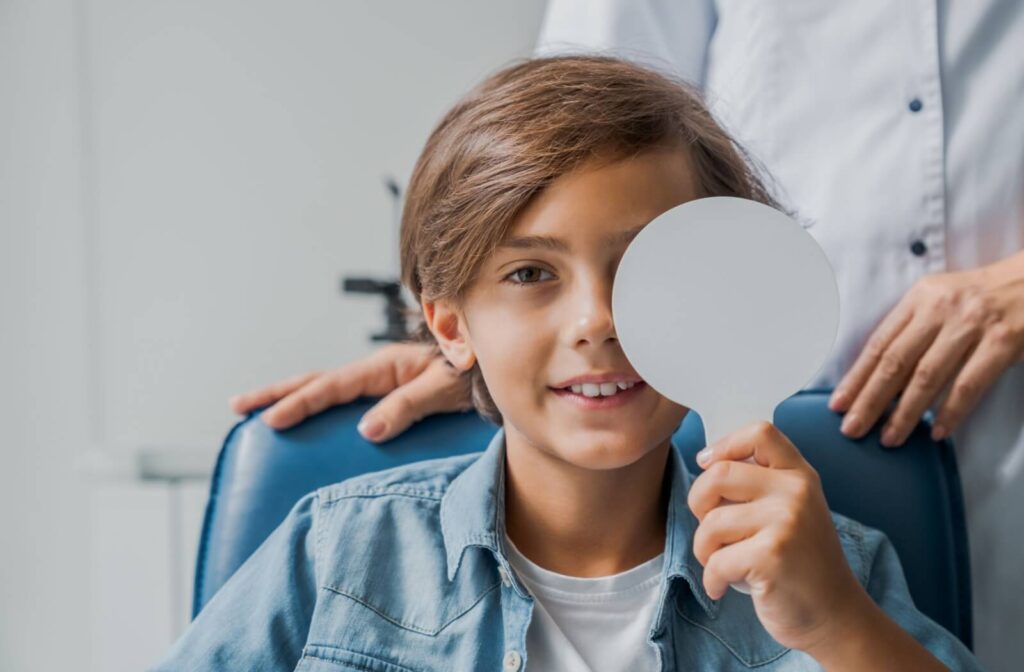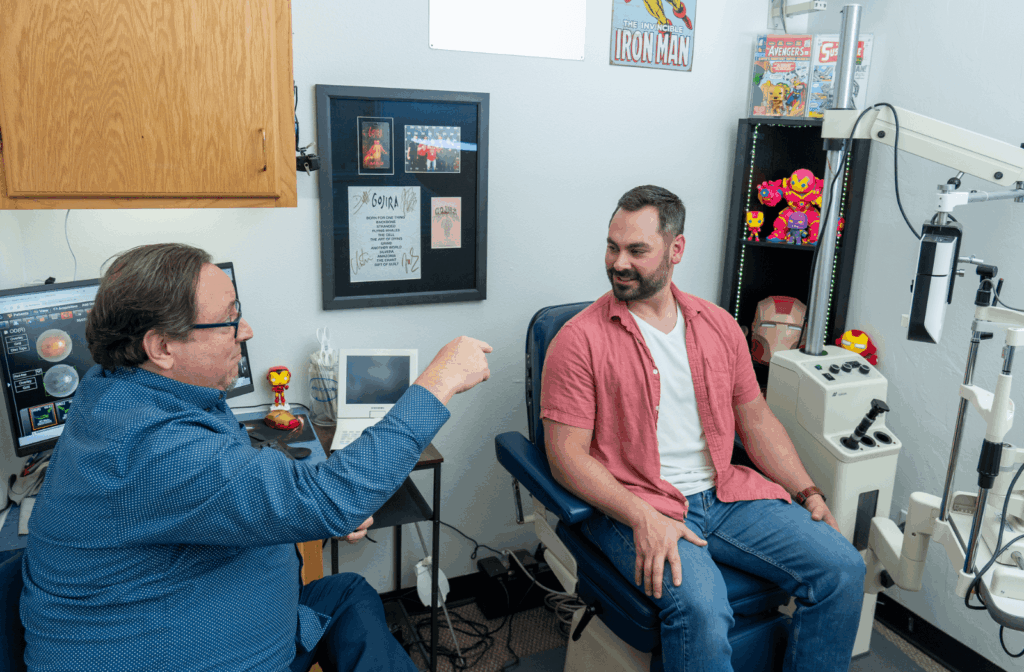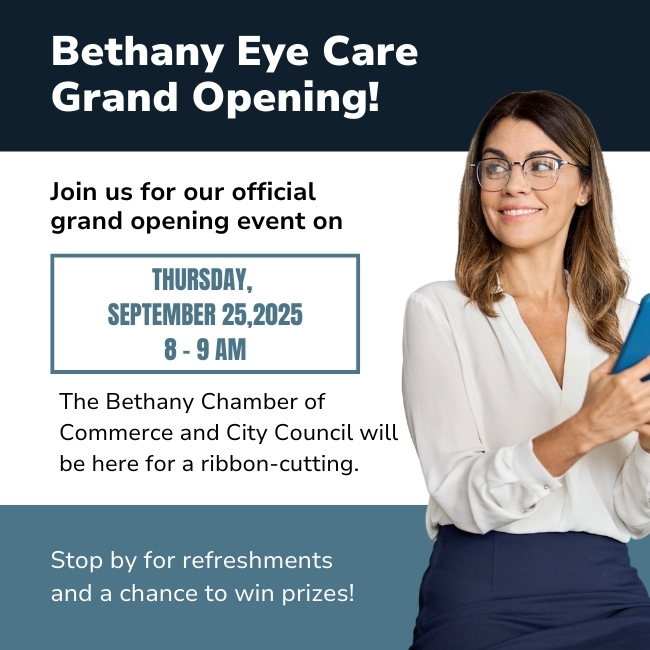A comprehensive eye exam is more than just reading letters on a chart, it’s a full check-in on the health of your eyes. These exams involve a variety of tests to assess your vision, eye pressure, coordination, and the condition of your retina and optic nerve. Your optometrist may use a range of tools and technology during the process, depending on your needs.
It’s all about getting a deeper understanding of how your eyes are doing. Not just today, but over time. Whether you wear glasses or not, routine eye exams help keep your eyes healthy.And if you ever have questions during your exam, don’t hesitate to ask.
Why Regular Eye Exams Matter
Even if your vision seems perfectly fine, there’s a lot going on behind the scenes in your eyes that you might not notice. Vision changes can creep in gradually, and eye conditions don’t always come with obvious signs early on.
That’s why these regular check-ins are such a key habit. They give your optometrist a chance to track subtle changes over time and catch potential concerns before they affect your day-to-day life.
Eye exams are a chance for your optometrist to look closely at the internal structures of your eye, like your optic nerve, retina, and blood vessels, to help spot early signs of conditions such as glaucoma, cataracts, or even high blood pressure.
When problems are caught early, you often have more options for managing them and protecting your long-term vision. Whether you’re already wearing glasses or just want peace of mind about your eye health, routine exams are a simple, proactive way to care for your vision and stay ahead of potential eye health issues.
What Your Optometrist Can Spot
During a comprehensive eye exam, your optometrist checks for much more than blurry vision. Some of the most common issues they can detect include:
- Refractive errors like nearsightedness, farsightedness, or astigmatism
- Glaucoma, which can affect your optic nerve and vision over time
- Cataracts, or cloudiness in the eye’s natural lense
- Diabetes-related changes, which can show up in the blood vessels at the back of your eye
- High blood pressure, often visible through changes in the retinal blood vessels
- Age-related macular degeneration (AMD), a common cause of central vision loss in adults over 50
Catching these concerns early makes it easier to treat or manage them effectively.
What Happens During an Eye Exam?
Before the Exam
Before your appointment, it’s helpful to bring along a few key things:
- Your current glasses or contact lenses
- A list of any medications you take
- Notes on any recent changes to your vision
- A quick rundown of your medical and family health history
This info gives your optometrist helpful context and allows them to tailor your exam.
During the Exam

Comprehensive exams will include a series of tests to check your vision and eye health. You could experience tests like:
- Visual acuity testing, to see how clearly you can see near and far
- Refraction testing, to determine if you need a new prescription
- Eye muscle testing, to check how well your eyes move and work together
- Peripheral vision checks, to look for signs of glaucoma or other issues
- Tonometry, which measures pressure inside the eye
- OCT imaging, which provides detailed pictures of your retina and optic nerve
Each test helps your optometrist understand how your eyes are doing and what support you might need.
After the Exam
Once all the testing is complete, your optometrist will go over the results with you. You’ll find out if your prescription needs an update or if anything unusual showed up. If additional care or testing is needed, they’ll explain next steps and help you understand your options.
Most exams take between 30 minutes to an hour, depending on the tests performed.
How Often Should You Have an Eye Exam?
Keeping a consistent exam schedule helps track changes over time and spot problems early, often before you notice anything yourself. Sticking to a routine means your optometrist can catch vision changes or signs of eye disease sooner, giving you more time to respond and protect your sight.
Here are some general guidelines to follow:
- Children under 18: once a year
- Adults 18–64: every 2 years
- Adults 65 and up: once a year
- Anyone with diabetes or other eye-related health concerns: once a year, or as your doctor recommends
That said, if you notice anything unusual, like sudden blurriness, trouble focusing, flashes of light, or new floaters, it’s always a good idea to schedule an exam sooner rather than later.
Schedule Your Next Visit
If it’s been a while since your last eye exam, now’s a good time to get back on track. Regular visits help protect your eyesight, monitor your health, and make sure your vision is supporting your day-to-day life.
At Bethany Eye Care, we’re here to guide you through it all. Whether it’s your first visit, a routine checkup, or you’ve got questions about your vision. We make it simple to stay on top of your eye health. Book your comprehensive eye exam today and let’s keep those eyes healthy for the long haul.




